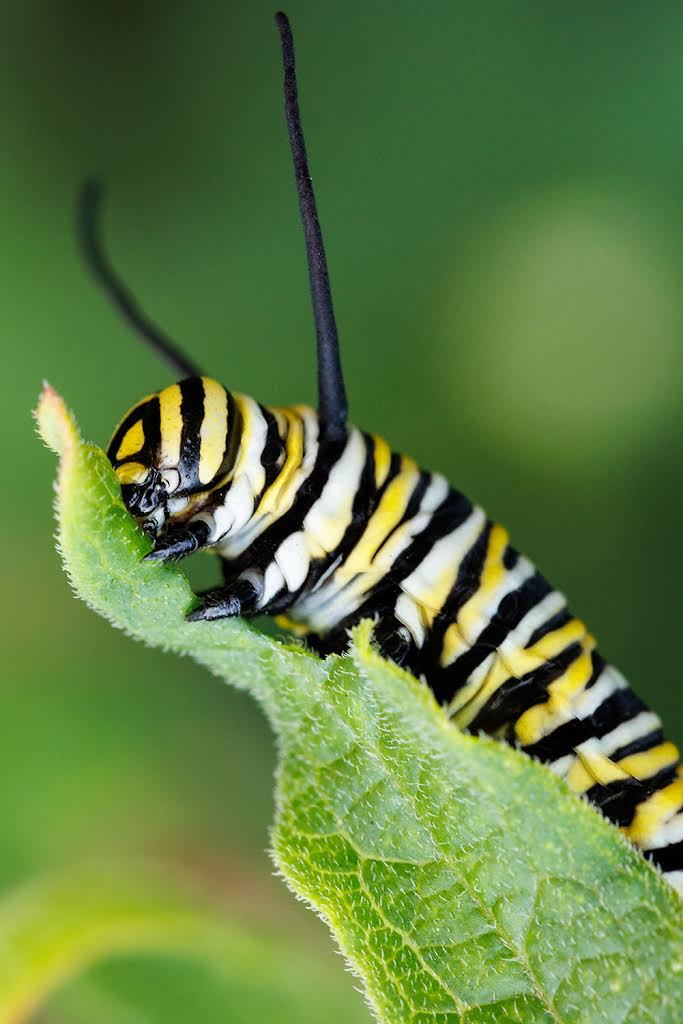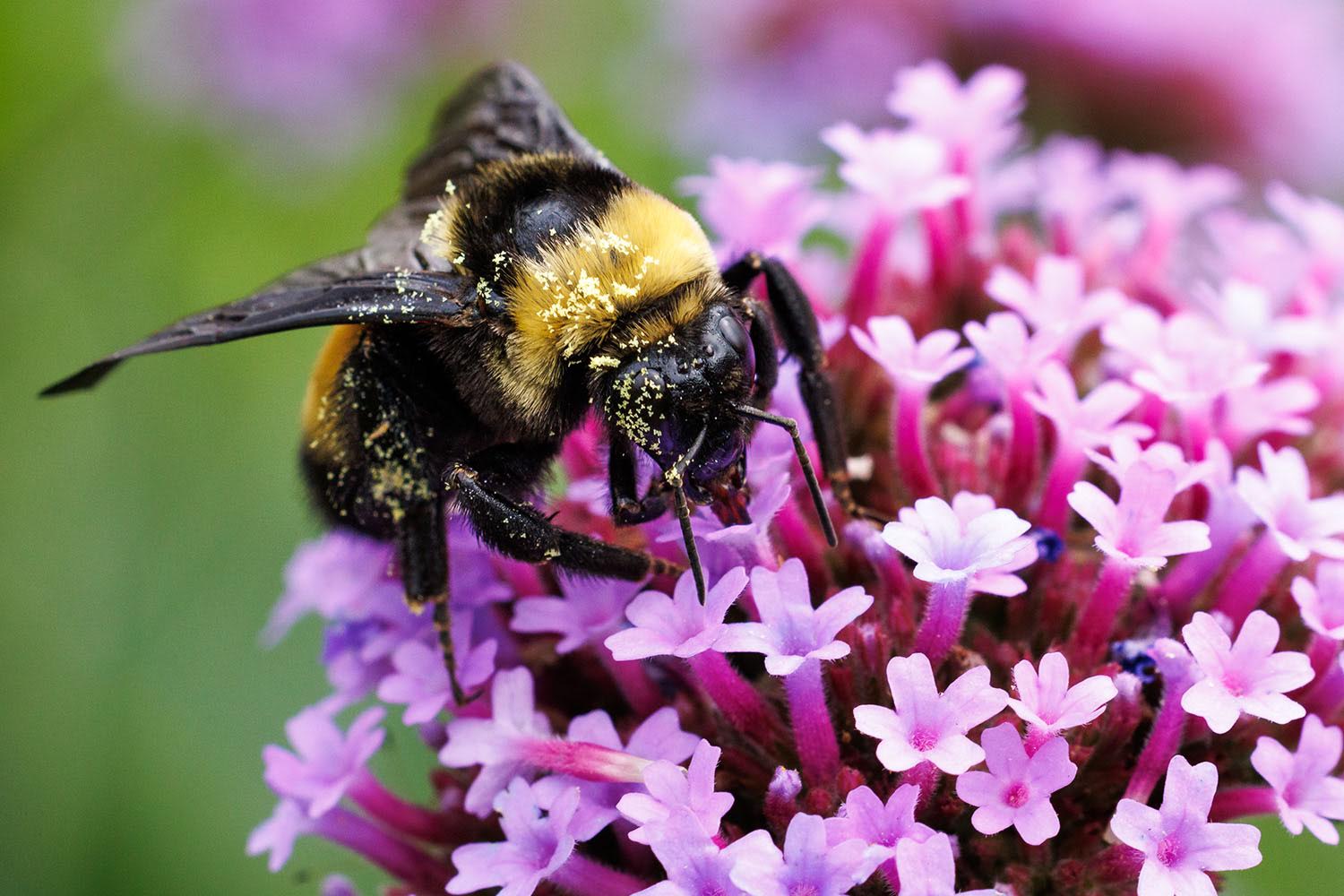Despite their importance, pollinator populations are in decline. Colony collapse disorder imperils European honey bees, which are critical in food crop production. According to the U.S. Fish and Wildlife Service, habitat loss due to roadway construction and non-native landscaping or gardening removes vital food resources and nesting sites relied upon by many pollinators.
 A monarch butterfly caterpillar (Danaus plexippus) eats a swamp milkweed leaf on the Aquarium Plaza in Chattanooga. Tennessee Aquarium
A monarch butterfly caterpillar (Danaus plexippus) eats a swamp milkweed leaf on the Aquarium Plaza in Chattanooga. Tennessee Aquarium
That’s why the Tennessee Aquarium encourages guests to “bee” on the lookout for these incredible critters while visiting its campus during Pollinator Week from June 17 to 23.
To help raise awareness of pollinators’ importance and challenges, the Aquarium will host a flurry of events during Pollinator Week to engage guests about these remarkable animals and their role in our ecosystem. Daily between 10 a.m. and 2 p.m., Aquarium educators will share tips on native pollinator-friendly gardening practices, offer guidebooks with suggestions for protecting pollinators in your yard, and host pollinator-themed games and activities for visitors of all ages.
During their visit, guests can also explore the Pollinator Pathway, a self-guided experience on the Aquarium Plaza that winds through gardens filled with native plants that offer ample habitat for resident and flutter-by pollinators. Created in partnership with the Tennessee Department of Transportation’s (TDOT) Pollinator Habitat Program, the pathway features permanent signage describing pollinator behavior and steps to enticing them to your yard, as well as detailing the Association of Zoos and Aquariums’ Saving Animals From Extinction (SAFE) program for monarch butterflies.
The Aquarium’s native plant expert and caretaker of the plaza gardens will also give away more than 500 native plant plugs and 400 native seed packets while supplies last. These giveaways feature pollinator favorites like common milkweed, swamp milkweed, butterfly weed, and Joe-Pye weed. They are ready to be planted immediately to begin your journey toward aiding native pollinator species.
